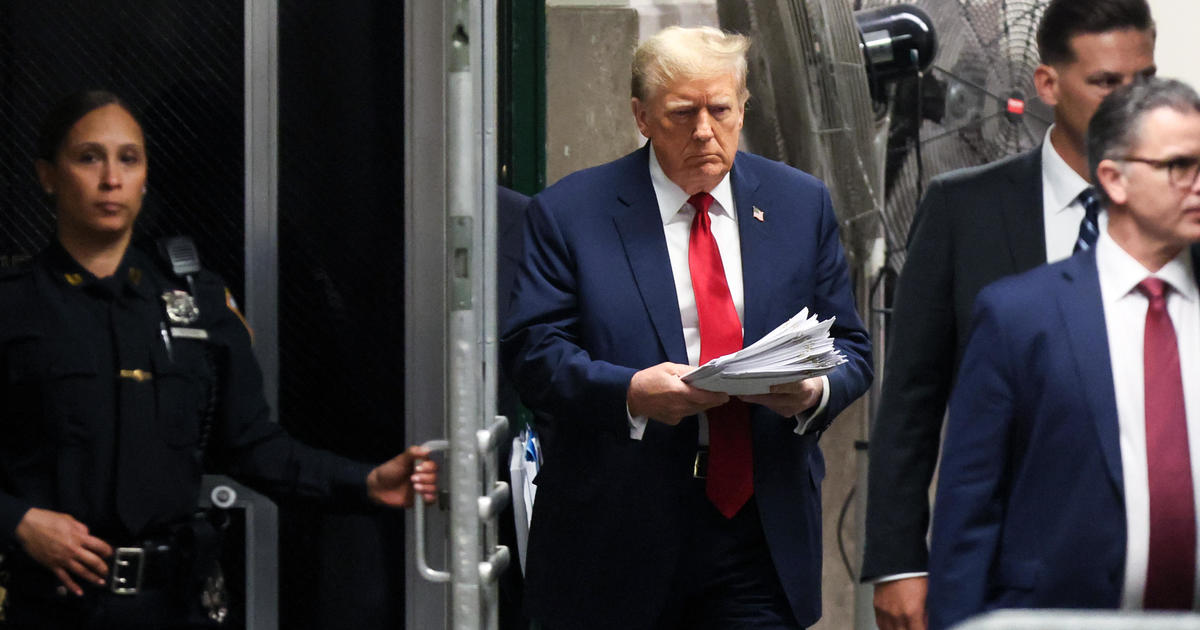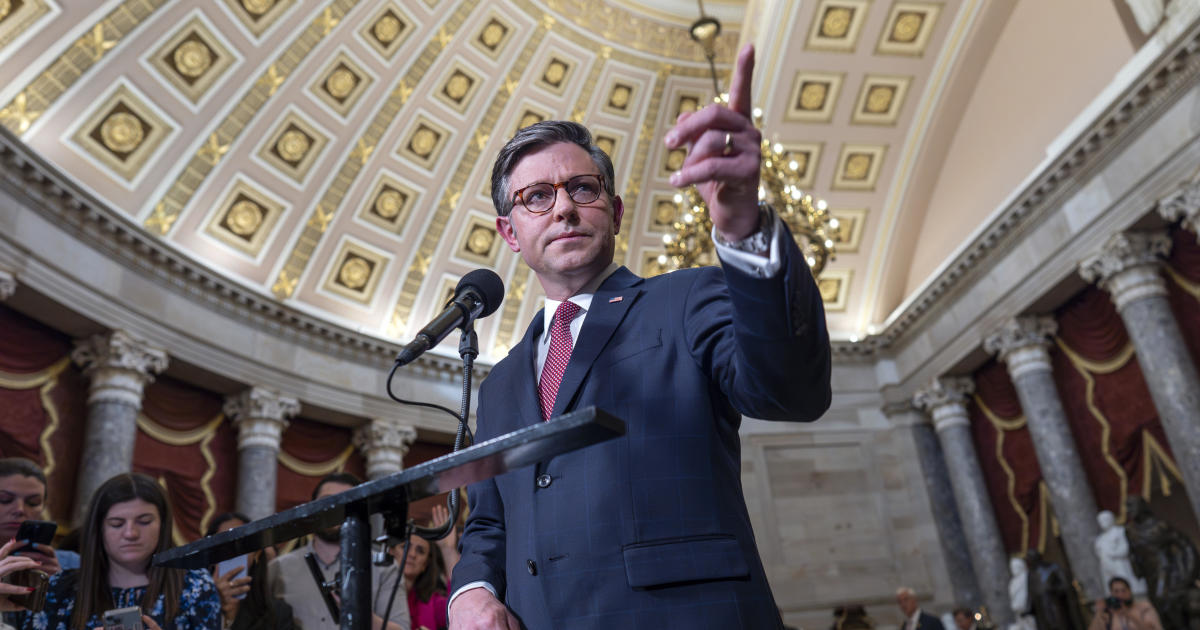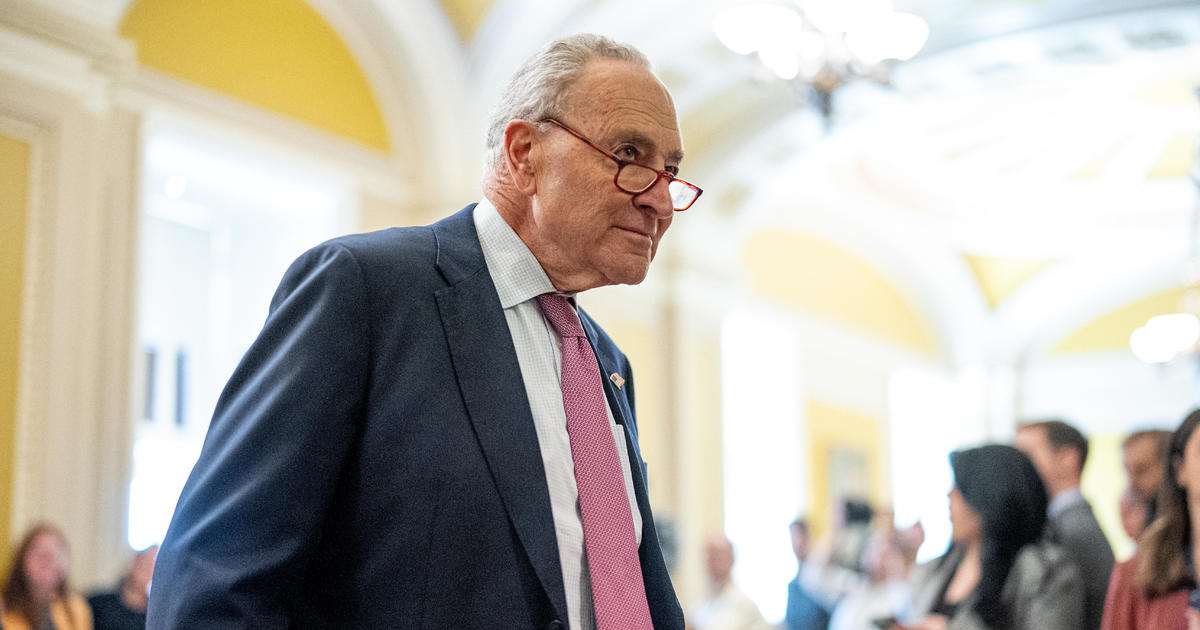What is the "tax gap" the White House wants to shrink?
The White House's top budget official, Office of Management and Budget (OMB) Director Mick Mulvaney, talked up the administration's plans for a simpler tax code while introducing the budget Tuesday, predicting such a change would help shrink the country's "tax gap."
So, what is the tax gap?
The tax gap, simply put, is the amount in taxes individuals and companies owe the government, but that the government never receives. There are three reasons for that gap --some fail to pay any taxes, others underreport income, and yet others underpay their taxes, according to the IRS. Mulvaney said the president's proposed tax plan doesn't include an expectation that the gap will close, but pointed out how shrinking it would help the proposed $4 trillion budget. The tax gap in 2016 was $486 billion -- out of the expected revenue from income and corporate taxes of roughly $1.9 trillion.
"Almost enough to close the deficit that year," Mulvaney said. "And we don't assume an additional penny of that being closed as part of our tax reform."
Mulvaney said there are two reasons for the tax gap -- people either don't want to pay, which is always a problem, or filing out the form is "just too hard." It's not easy to make headway into that first problem, Mulvaney conceded, but that second reason has a solution.
"If you can really fill out your tax reform -- tax returns on a single piece of paper, you're much more likely to actually do it," Mulvaney added.
However, Mulvaney's hopes of closing or even significantly shrinking the tax gap may be a stretch. The tax gap has remained relatively stable during the last decade, with the majority of the gap stemming from individual, rather than corporate, tax, shortages. The total tax gap was $450 billion in 2006, and the total tax compliance rate was 83 percent, according to the Government Accountability Office. The Obama administration made attempts to close the gap by stepping up enforcement, but probably only reduced it by $50 billion to $100 billion over a decade, said Marc Goldwein, senior vice president and senior policy director at the Committee for a Responsible Federal Budget.
Mulvaney thinks a simpler tax code will help close the gap-- he reasons that one of the biggest reasons people don't pay taxes is that they don't want to or are unsure how. Much of the White House's pitch for tax cuts hinges not necessarily on cuts, but on how the plan -- still in a preliminary stage -- would make filing taxes simpler for the average American.
"It's not that easy to get rid of it," Goldwein said. "In fact I should say, it's impossible to get rid of it. It's not that easy to reduce it."
Simplifying the tax code reduces an incentive to underreport and makes it easier to report the correct numbers, but no one approach or combination of approaches will eliminate the gap, Goldwein said.
GAO, which analyzed the tax gap problem in 2012, pointed out that simplifying the tax code is only one way to help close the gap. GAO said the IRS also needs to improve customer service lines for taxpayers, devote additional resources to enforcement, expand compliance checks before issuing refunds and modernize information systems, among other things, to address the gap.
"There's not some magic way to get an entire half a trillion dollars a year," Goldwein said.
But if the Trump administration managed to do what previous administrations have been unable to do and closed the tax gap with a one-approach solution, what would that more than $400 billion cover?
The answer is, quite a lot. That $486 billion represents more than 10 percent of the White House's proposed fiscal year 2018 budget. For instance, it would easily cover the proposed 2018 Medicaid budget of $408 billion, a good chunk of the proposed $600 billion defense budget, or much of the proposed $582 billion Medicare budget.
"That would be huge, if somehow we could get that, we would have barely any budget deficit this year," Goldwein said.
"But that's also kind of a fantasy," Goldwein added. "That's kind of the equivalent of saying, what if we eliminate all government waste, fraud and abuse?"



